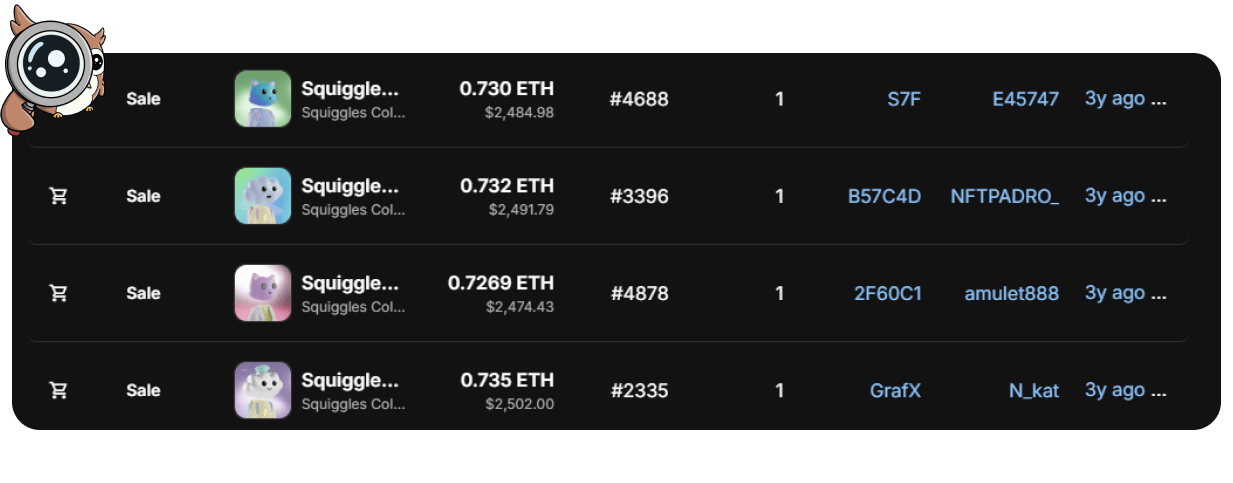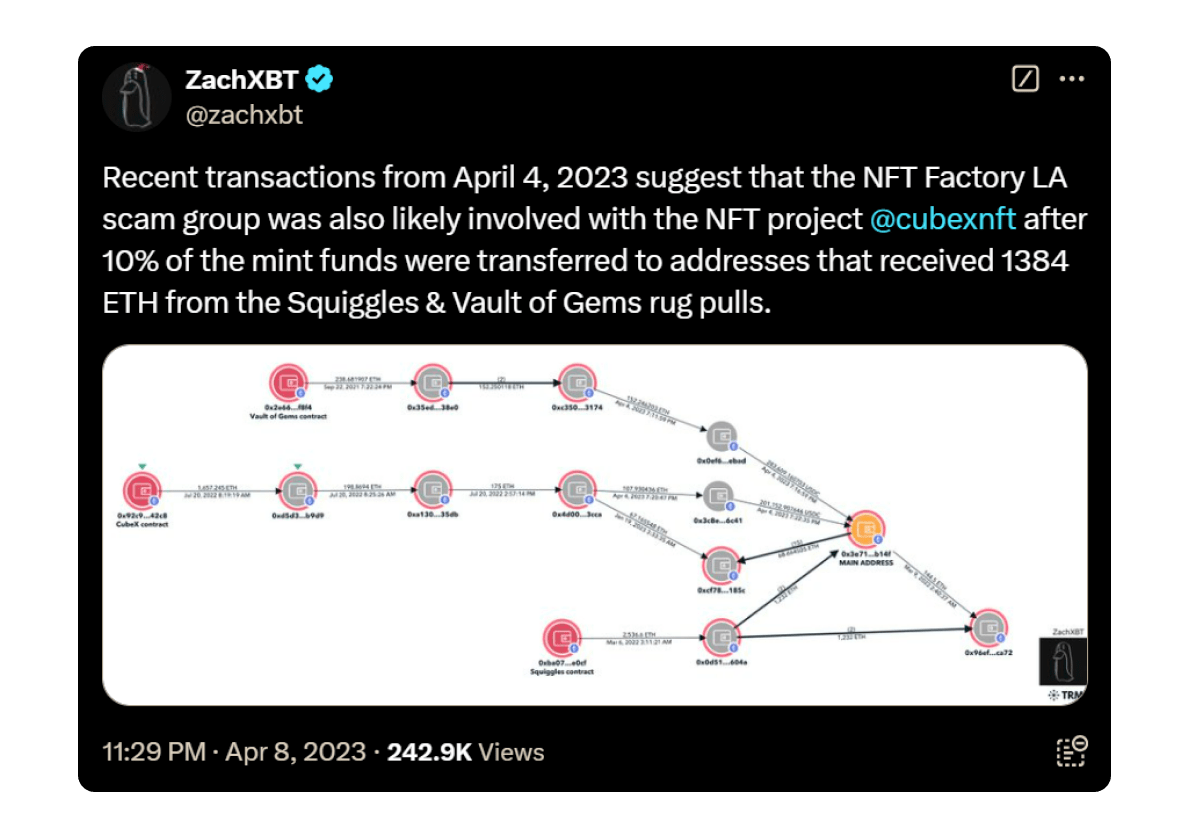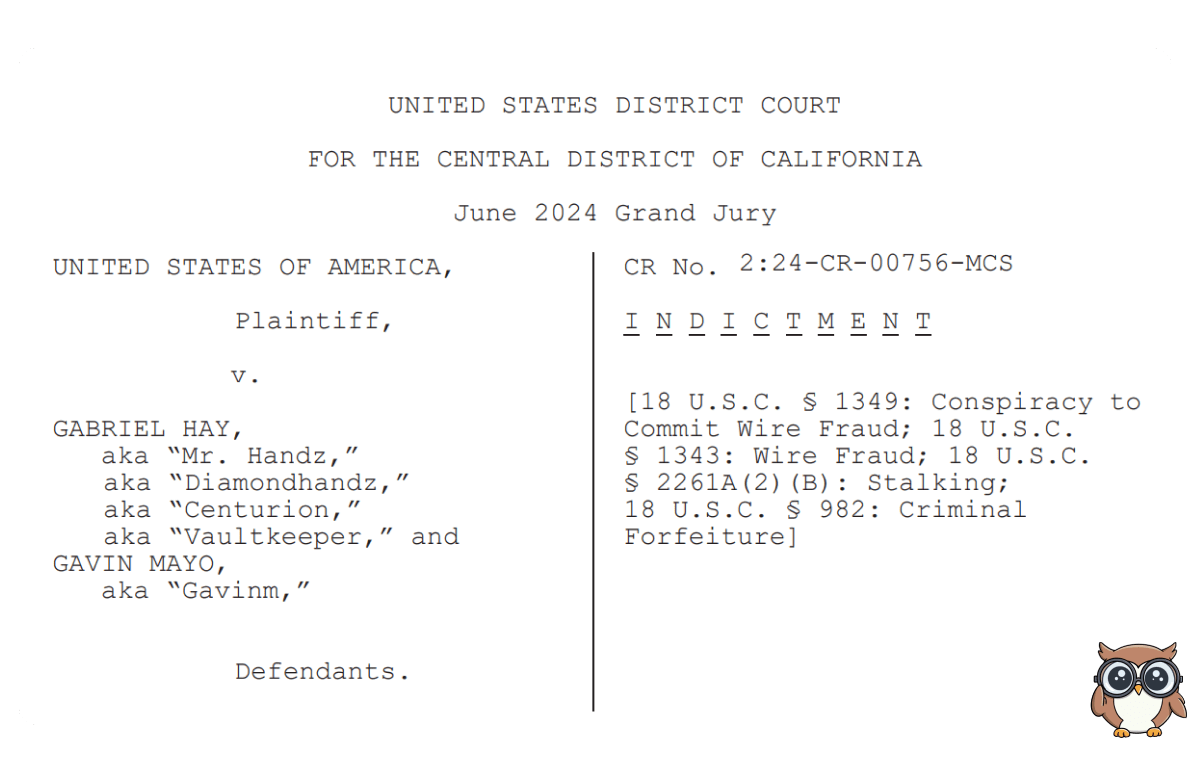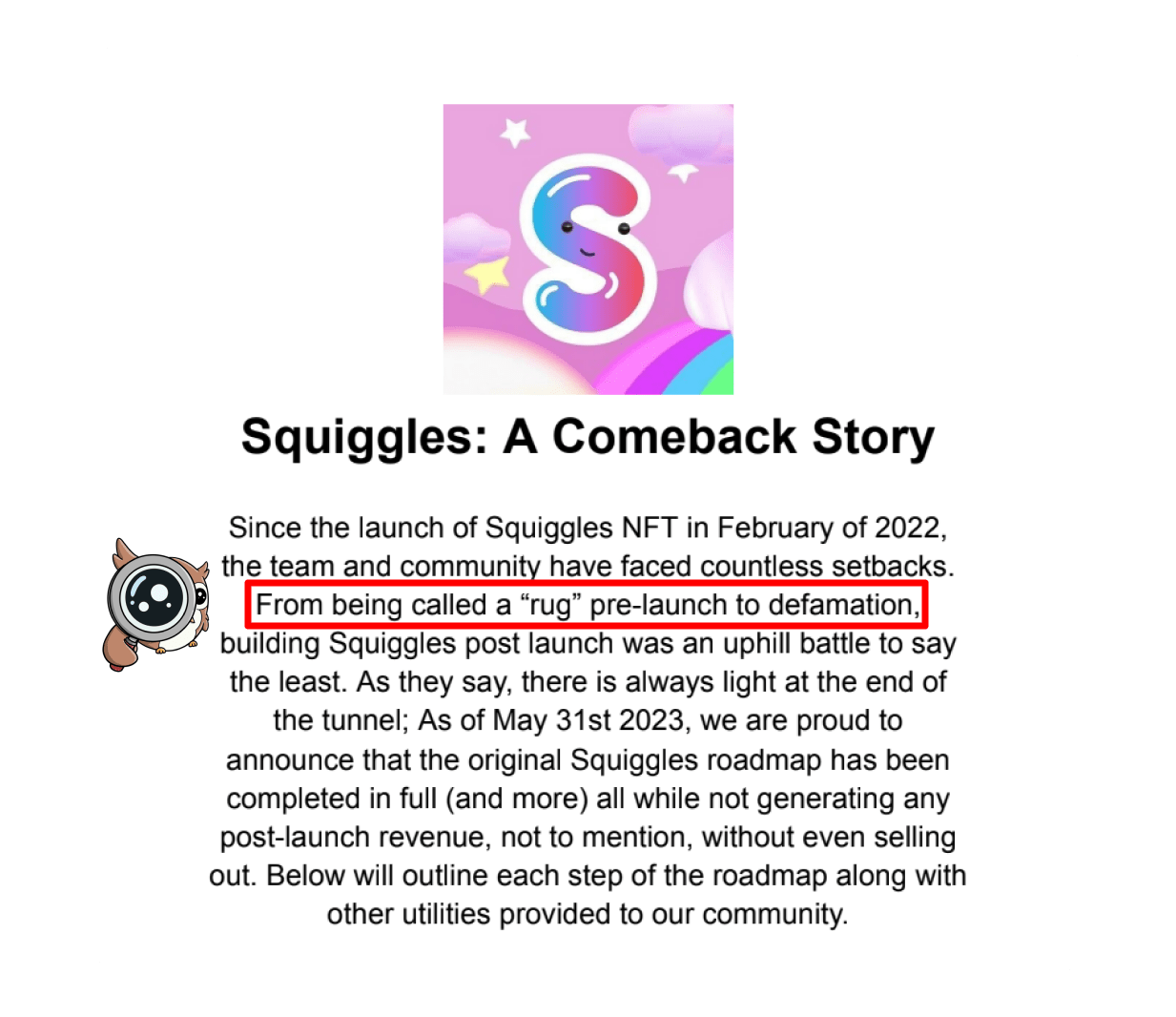California Duo Busted for $22M Squiggles NFT Rug Pull: The Largest Case Yet
Two California men face charges in the largest $22M NFT fraud case, spotlighting efforts to combat Web3 scams.
Two California men face charges in the largest $22M NFT fraud case, spotlighting efforts to combat Web3 scams.
SMooTH
Share
In what is the largest NFT fraud case ever prosecuted in the U.S., two California men, Gabriel Hay (aka "Mr. Handz", “Centurion” or "Vaultkeeper") and Gavin Mayo (aka “Gavinm”), have been charged in a massive $22 million NFT rug pull scheme.
The allegations? Defrauding thousands of investors through fake crypto projects, then vanishing like Hawk Tuah girl with the loot.
The Great Rug
According to federal prosecutors, Hay and Mayo masterminded a series of NFT projects from 2021 to 2024, promoting them as game-changing ventures with promises of groundbreaking features and dazzling roadmaps. But instead of delivering, they pulled the plug and pocketed the money—a classic rug pull.
Remember Squiggles?

Sporting an impressive 900 ETH in volume on OpenSea and trading for thousands of dollars, Squiggles is but one of the many projects that the duo abandoned.

One of their flagship projects, Vault of Gems was touted as the "first NFT pegged to a hard asset," supposedly backed by real jewellery. Spoiler alert: there were no jewels, just empty promises. The project alone raked in over $1 million before Hay and Mayo allegedly ghosted their investors.
Other ventures included Faceless, Sinful Souls, Dirty Dogs, Uncovered and even a few tokens: Clout Coin, MoonPortal and Roost Coin. All followed the same playbook, collectively duping investors out of tens of millions.

A Notorious History
This isn’t the first time Hay and Mayo’s names have surfaced in the crypto space for the wrong reasons. Back in February 2022, a document released by Y3K Pirates alleged that the duo, along with other members of the so-called "NFT Factory LA team" were involved in multiple fraudulent NFT projects, even mentioning a few projects that are not mentioned in the official endictment.
Blockchain sleuth Coffeezilla—known for exposing scams—shed light on their connection to the "Squiggles" project. Similarly, crypto Batman aka ZachXBT has highlighted their involvement in fraudulent schemes through the years, often pointing to shadow wallets and suspicious transaction patterns that funnelled funds to the fraudsters’ circle.

The Charges
Hay, Mayo, and 2 other unnamed co-conspirators now face a laundry list of charges, including:
- Conspiracy to commit wire fraud (maximum penalty: 20 years per count).
- Wire fraud (maximum penalty: 20 years per count).
- Stalking (maximum penalty: 5 years per count).
If convicted on all counts, they could spend decades behind bars.
Bigger Implications for Web3
By spearheading prosecutions like this, the National Cryptocurrency Enforcement Team (NCET) is proving to be an essential step toward cleaning up Web3 and protecting investors. However, while this is promising for the ecosystem, traditional legal systems move at the speed of dial-up internet compared to the lightning-fast pace of crypto. Cases like this take years, while fraudsters are rugging and running in weeks.

That’s where the unsung heroes of Web3 come in: sleuths like ZachXBT, Coffeezilla, and many others. These legends are often a step ahead, exposing scams and connecting blockchain breadcrumbs long before authorities catch up. Their work has become indispensable for the community, especially as the market approaches a potential bull run when scams tend to multiply. Supporting these crypto sleuths and amplifying their efforts is critical to safeguarding the space from bad actors.
The hope? That law enforcement can catch up to the speed of crypto. While slow justice is still justice, faster action could rug these fraudsters before they strike again—protecting not just investors but making the entire crypto space safer for everyone.

What’s Next?
Hay and Mayo’s indictment serves as a cautionary tale for the NFT community. If you’ve been scammed by their projects, you can email rugpullvictims@hsi.dhs.gov to report your case.
In the meantime, let’s remember the golden rule of Web3: DYOR (Do Your Own Research). Not every roadmap leads to riches; some lead straight to a courtroom. Stay skeptical, stay safe—and maybe the next time the founder can’t do basic math, hold off on buying whatever he’s selling.

SMooTH
@thisissmooth
📢 Teaching communication skills 🔎 Research @tryPluid 🦉 Ambassador @dyli_io 👍 Confident Cobra 🐍
Recommended by Pluid
News
by darwizzynft
News
Jul 31, 2025

News
by darwizzynft
News
Aug 20, 2025

News
by darwizzynft
News
Sep 19, 2025

News
by darwizzynft
News
Aug 20, 2025
